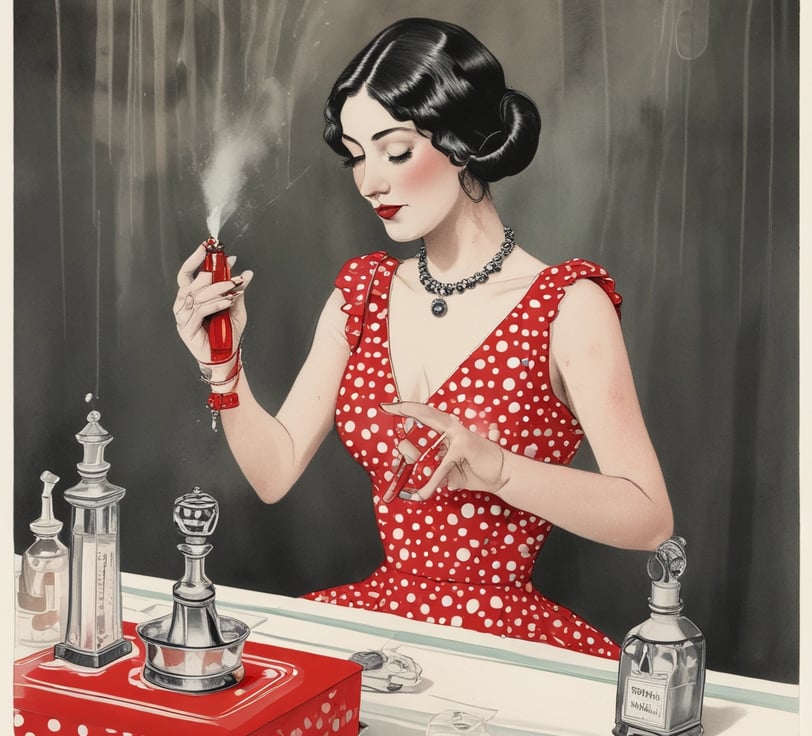The Evolution of Fragrance: From Ancient Elixirs to Avon's Affordable Elegance
3/25/20252 min read


The art of perfumery, a craft steeped in history, has evolved from ancient rituals to a modern expression of personal style. Its journey, as rich and complex as the scents themselves, began with the precious elixirs of antiquity, but took a transformative turn with the advent of brands like Avon, which democratized access to beautiful fragrances.
Early Beginnings: Ancient Egypt and Mesopotamia
The Egyptians, among the first to master the art, extracted aromatic essences from plants, flowers, and resins using techniques like enfleurage and distillation. These creations were vital in religious ceremonies, embalming, and personal adornment. Mesopotamians also contributed significantly, developing sophisticated methods for extracting oils like myrrh and frankincense, highly valued in religious rites and royal gifts.
The Greek and Roman Influence
The Greeks and Romans refined these techniques, incorporating aromatic oils into bathing rituals and using perfumes to create an aura of sophistication.
The Rise of Arabian Perfumery
The Arab world's advancements in distillation techniques led to more complex fragrances, featuring essential oils like rose, jasmine, and oud, establishing Arabian perfumery's reputation for luxury.
The Renaissance and Beyond
The Renaissance brought a resurgence of perfumery in Europe, with cities like Florence and Venice becoming production hubs, making perfumes a symbol of wealth and status.
Avon's Approach: Fragrance for Everyone
In the late 19th century, the California Perfume Company, later Avon, revolutionized the industry. Founder David H. McConnell recognized the allure of perfume samples, pioneering direct selling to bring quality fragrances directly to women's homes. This approach shattered the exclusivity of perfumery, making it accessible to a broader audience.
Avon's enduring philosophy is that exquisite fragrance shouldn't require excessive expenditure. They create scents that rival high-end brands, but at reasonable prices, ensuring everyone can experience the joy of a captivating aroma. From classic florals to contemporary blends, Avon offers a diverse range to suit various preferences, proving that elegance can be attainable.
The Ingredients of Scent: A Natural and Synthetic Symphony
Perfume creation involves a careful selection of ingredients, each contributing to the final fragrance:
Natural Extracts:
- Flowers: Rose, jasmine, lavender, and orange blossom.
- Resins: Frankincense, myrrh, and amber.
- Woods: Sandalwood, cedarwood, and patchouli.
- Fruits: Citrus notes like lemon, orange, and bergamot.
Synthetic Ingredients:
- Modern perfumery also uses synthetic compounds to recreate natural scents and create new olfactory experiences.
The art of perfumery, from ancient elixirs to Avon's accessible elegance, is a testament to human creativity and our timeless fascination with scent.
Beauty Boutique Vibes
Explore our curated selection of Avon products.
contact@beautyboutiquevibes.com
© 2025. All rights reserved.
